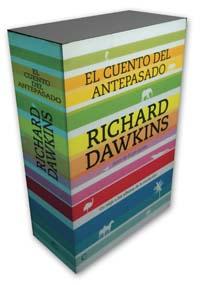Reading the evolution recommended by Kepa Altonaga

Kepa Altonaga teaches Zoology at the University of the Basque Country. We asked him for a recommendation from scientific books. On the one hand he has recommended three books of divulgation and on the other two of fiction. It should be noted that among the recommendations is a book by Richard Dawkins along with a book by Stephen Jay Gould, two different perspectives of evolution, often contradictory, but both very interesting.
His first book is The Song of the Dodo, by American David Quammen. "It's wonderful," says Altonaga. The book is of interest to anyone interested in evolution. Part of a striking fact: much more species disappear in the islands than elsewhere. Quammen studies the cases of several islands and archipelagos and tries to find a relationship between the surface of the territory and the number of species. In analysis, man's hand is also important.
The tale of the ancestor is the second book. It is a journey back in evolution, from human beings. The writer, the English Richard Dawkins, has given this format to the book, since following the opposite path is obtained a very anthropocentric point of view, which has wanted to avoid the perspective of evolution towards humans. In his opinion, the journey back from any branch of evolution is the first living destiny, the ancestor of all other living beings. Starting from human beings, forty crosses on the path of evolution until that first ancestor, which Dawkins takes as the guiding thread of the book.

The third book is Dinosaur in Haystack by American Stephen Jay Gould. It is a collection of thirty-four attempts by Gould, one of which gives title to the whole book. In these essays there are great reflections on evolution itself, and from this theme Gould takes us to many other areas, such as literature. Noteworthy is an essay on Frankenstein and writer Mary Shelley.
Another option to read about evolution is to do it through fiction books. Altonaga recommends Darwin Conspirancy, by writer John Darnton, and Harry Thompson's To The Edge of the World.





